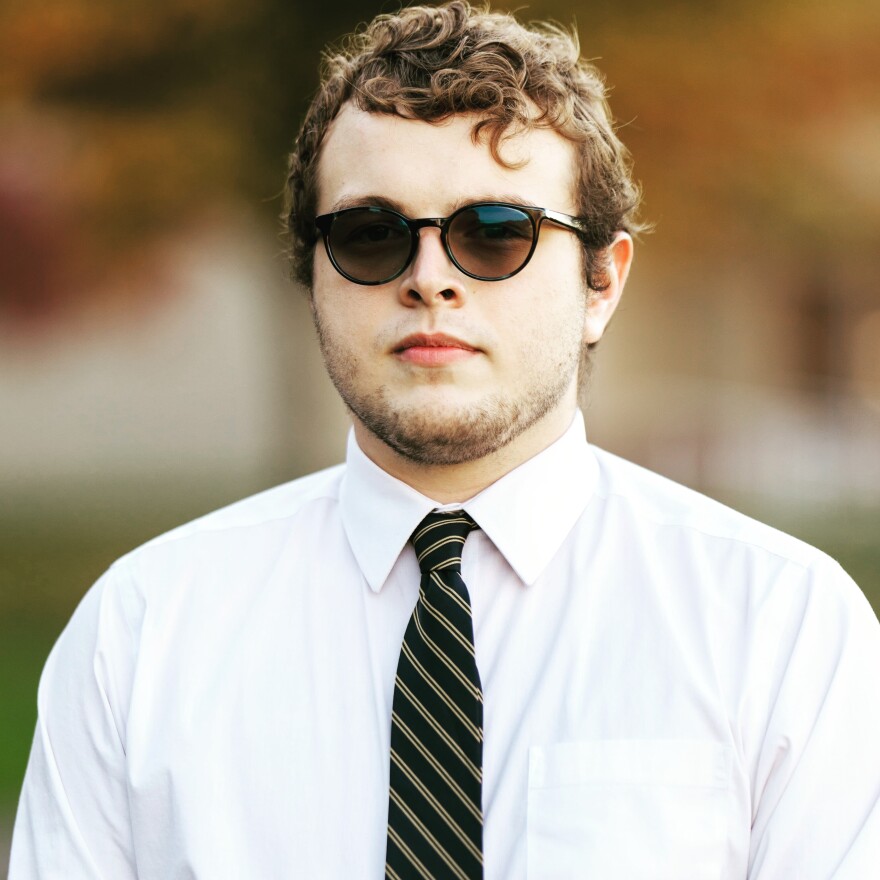A year from now, Ryan McFarland will don a cap and gown and walk across the stage at the University of Charleston, located along the Kanawha River across from the statehouse’s shiny golden dome.
The Pleasants County native will then be confronted by two decisions: law school or graduate school? Stay in West Virginia or leave?
“I really do want to stay here,” McFarland said. “I’m really motivated to be looking specifically at schools in our state and finding a place to live in our state, whether that be at home or moving to Charleston.”
He wants to stay in West Virginia, but also says there are limited opportunities.
“For instance, if I wanted to go to law school, and I wanted to stay in West Virginia, we only have one singular law school,” he said in explaining his thinking about future plans. “The same way with a lot of specialized programs and graduate schools, you’d have to go out of state to find this thing.”
This story is part of our series, “Plugging the Brain Drain” about young West Virginians deciding whether or not to leave the state.
If he does leave, he would leave his family behind, including some older relatives who are in poor health. He helps take care of them and calls it an “all hands on deck” moment for the family.
McFarland said he chose political science because he wants to be involved, to fix the problems facing West Virginia, to keep people here and to make the state better.
“I love our state,” McFarland said, “I know some things are bad, and some things need work. And I don’t want to pass that off to somebody else and hand the responsibility to other people and say ‘it’s your responsibility to fix it.’”
He’s interested in running for political office or working in state government someday.
“I would just encourage my peers to look long and hard at the trajectory of our state and realize that they do have the ability to choose the path forward for our state — whether that be through becoming a elected official, or just through voting,” he said. “All is not lost. We really have the keys to the future and we need to start working to make sure we fix the things that we don’t like in our state.”
McFarland would like to see lawmakers handle the opioid epidemic as a public health crisis as opposed to a criminal problem and said the state needs better mental health services.
He said he sees legislators stuck debating issues the younger generation had solved a long time ago like whether West Virginia needs state-wide protection for LGBTQ individuals from discrimination in employment and housing. These protections, known locally as the Fairness Act, didn’t pass during this year’s legislative session.
Sarah Christian is another young West Virginian who aspires to shape the state through politics. She lives in Tornado and graduated from West Virginia State in 2019 with a degree in political science.
She said she plans to run for state legislature in the next few years to help balance a “severe underrepresentation” of her generation.
She says she wants to improve West Virginia and sees a lot of potential in the state.
“I think it’s important that young people stay here and want to make a change here,” she said. “Because everybody does want to leave.”
Christian has been out of college for a couple years and said she’s struggled to find a job in her field.
“I feel like I’m in purgatory and I don’t know what to do next,” she said.
Christian said she thought it would be easier to find a job after college and is now debating whether it’s worth hanging around West Virginia for the right opportunity.
“If I found something that was interesting to me and I got it, I’d be out of here in a heartbeat,” she said.
West Virginia is the third-oldest state in the nation, according to 2019 data from the U.S. Census Bureau. Christian said state lawmakers are investing in the state’s older generation when they should be investing in the youngest.
“What’s our state going to do when that generation isn’t here anymore, but all of the young people have left?” Christian asks. “When do you start investing in your growing generation, rather than your dying generation? When are they going to invest in us?”
Christian would like to see state lawmakers invest more money in job opportunities, affordable housing, and reliable broadband. Otherwise, she sees herself and many of her peers moving away.
“Why would we stay here when we could move to Charlotte or Pittsburgh, Columbus or Nashville and get a great paying job, a new apartment with partial utilities included and reliable internet access for under $700 a month?”






















